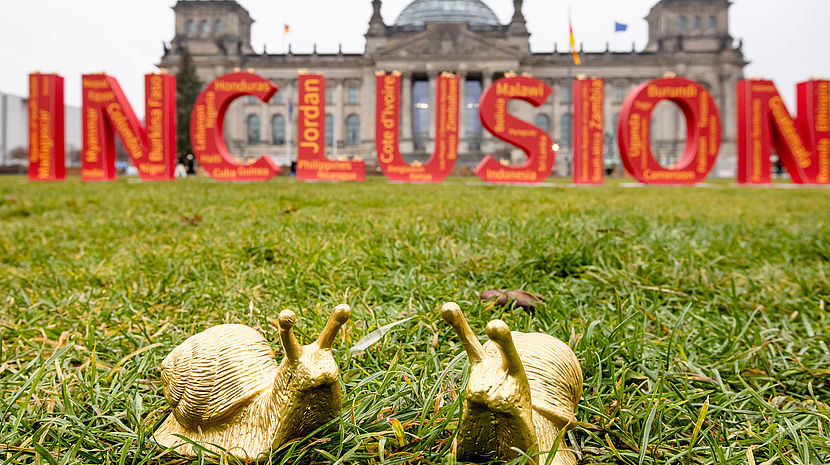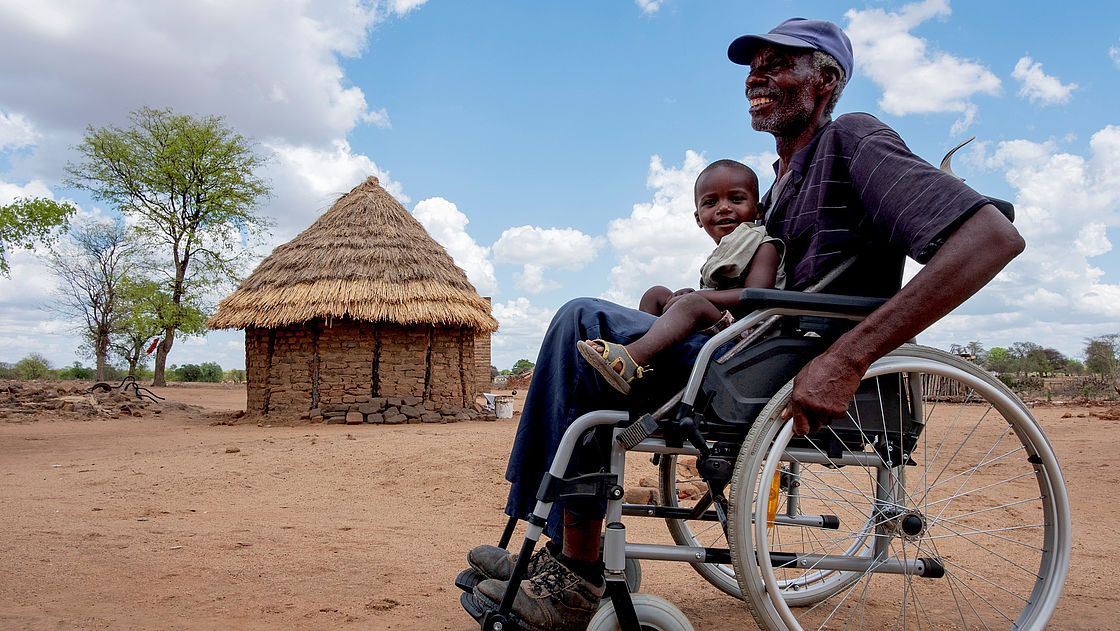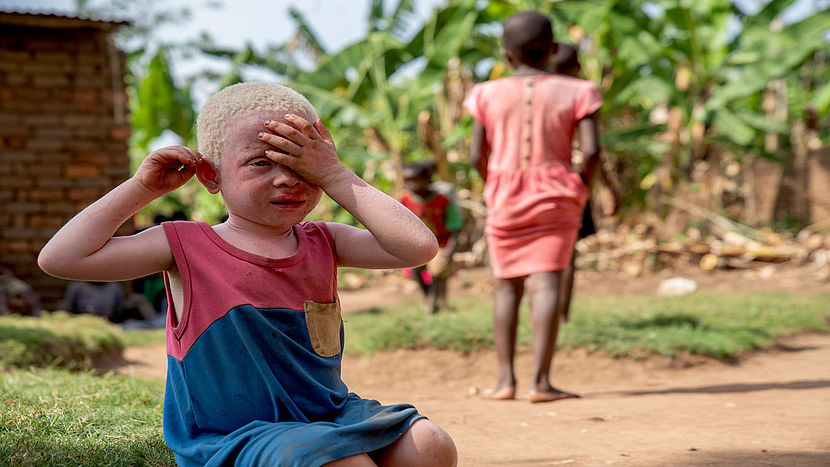This International Day of Persons with Disabilities:
CBM Demands for More Speed Towards Inclusion

©CBM
On the International Day of Persons with Disabilities on 3 December, CBM sends a clear message in front of the parliament building in Berlin, Germany: "International inclusion at a snail's pace? Not with us!" The snail, created by artist Ottmar Hoerl, symbolises that disability inclusion is progressing far too slowly.
Despite commendable progress in the legal, political and developmental protection of persons with disabilities, their inclusion remains inadequate because it is mostly only on paper. To mark the International Day of Persons with Disabilities on 3 December, CBM introduces the Inclusion Snail. The new symbol reminds us that progress towards inclusion is too slow.
"Inclusion must no longer proceed at a snail's pace," warns Dr. Rainer Brockhaus, CEO of CBM. "Development projects should not disregard the needs of persons with disabilities," says Brockhaus.

Ezekiel gives his grandson Kuda a ride in his new wheelchair at his home in a food-insecure area of Zimbabwe.
©CBM/HaydukCommitment Without Implementation is No Commitment
States Parties committed to inclusive international cooperation. The commitment seemed revolutionary when countries signed the UN Convention on the Rights of Persons with Disabilities in 2007. Unfortunately, the resulting actions have not been implemented or are only moving at a snail's pace.
" Stakeholders are moving like snails, in this case too slowly towards inclusive development cooperation. It is not that they do nothing. It is rather that their efforts have stalled. There is a lack of binding targets, measurable goals, timelines and financial and human resources. Inclusion must be a cross-cutting task, not a field of activity for a few committed people," says Michael Herbst, Head of Advocacy at CBM.
For this reason, CBM demands:
- Accessibility: Ensure that the environment, transport, information, communication, technical assistive devices, and technologies are accessible to all.
- Accountability: If success or failure can be measured, this puts pressure on those responsible. Therefore, it is important to ensure transparency, clearly assign responsibilities, collect data and set indicators to track progress.
- Participation: Persons with disabilities have the right to be consistently and effectively included in all development processes. To ensure this, their self-advocacy organisations need to be strengthened.
- Resources: Inclusion is often not costly. This is especially true if it is part of the project planning from the beginning. However, additional financial, technical, human and time resources are needed to achieve inclusion.
One Billion Reasons why Disability Inclusion Matters
More than one billion people have a disability - 80 per cent of them live in low and middle income countries. They are not adequately addressed in most development projects.
The statistics paint a disturbing picture. According to WHO, persons with disabilities are three times more likely to be denied health care, four times more likely to be treated poorly in the health system and 50 per cent more likely to have catastrophic health expenditures. Disability is often not perceived as a health problem. As a result, no action is taken to include persons with disabilities in the health sector, which is also often overlooked in national disability strategies and action plans to implement and monitor the Convention on the Rights of Persons with Disabilities.
Worse, women with disabilities face double discrimination, both because of their gender and because of their disability. They are often denied access to income-generating activities, denied credit and are particularly likely to be victims of sexual violence
As CBM, we are committed to promoting and practising inclusion. Therefore, this symbol of the inclusion snail is one of the many CBM campaigns to implement solutions that lead to a more inclusive society. In parallel, CBM has launched the Inclusive Participation Toolbox, a digital hub of resources for professionals and organisations working in international development to improve their approaches to participation by making the inclusion of persons with disabilities part of all policies and programmes.
